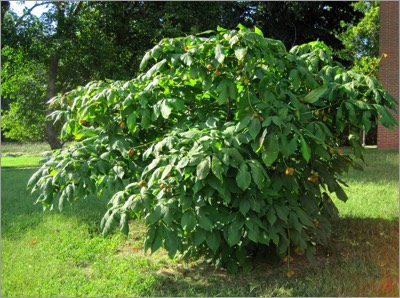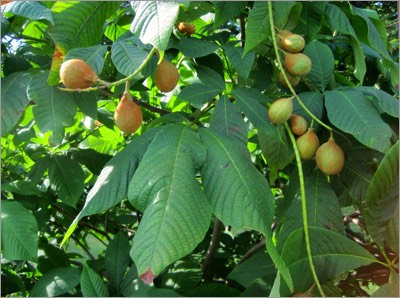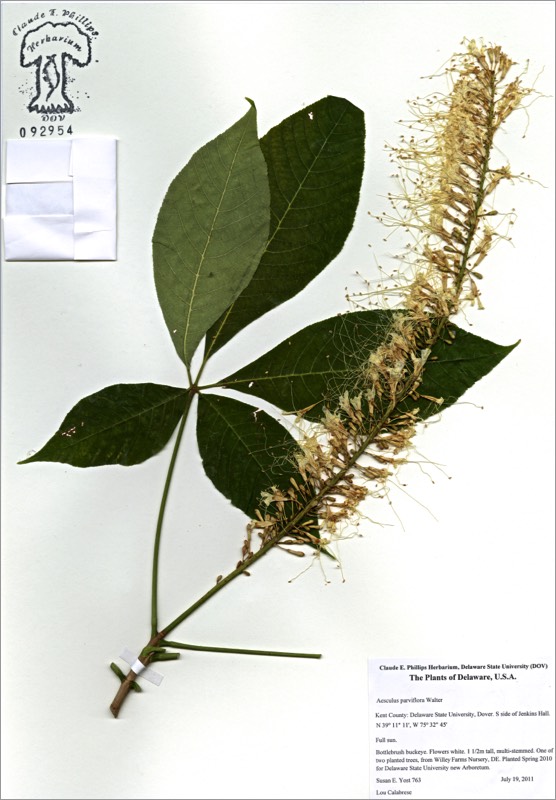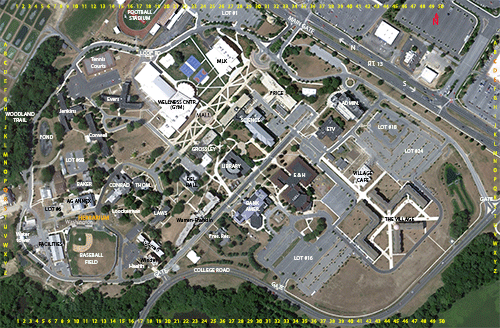*Bottlebrush buckeye


*Aesculus parviflora
BOTTLEBRUSH BUCKEYE
Sapindaceae
S.E. North America
Location: map coordinates K-9 (near south side of Jenkins Hall),
N 39°11'13'' W 75°32'44''
Planting history: planted 5/6/10. Source: Willey Farms, DE. (Dr. S. Yost, USDA NIFA Capacity Bldg Grant funds).
Description:
*Non-native species (not native to Delaware)
BOTTLEBRUSH BUCKEYE
Sapindaceae
S.E. North America
Location: map coordinates K-9 (near south side of Jenkins Hall),
N 39°11'13'' W 75°32'44''
Planting history: planted 5/6/10. Source: Willey Farms, DE. (Dr. S. Yost, USDA NIFA Capacity Bldg Grant funds).
Description:
- deciduous shrub
- etymology: Aesculus for an oak (Quercus aesculus; now Q. robur); parviflora = small flowered
- leaf palmately compound (leaflets arranged like fingers on a hand); opposite
- flowers whitish, in large erect showy clusters (hence the common name ”bottlebrush”); stamens protruding; flowers attract butterflies
- fruit pear-shaped, 1”-3”; with thin husk enclosing 1 (or 2) large glossy seeds (“buckeyes”) which are inedible (like its relative the horse-chestnut)
- prefers shade; hardy to zone 5
- native to woodlands primarlily of Alabama (and Georgia, N. Florida); first described by W. Bartram in late 1700’s
*Non-native species (not native to Delaware)


HIT REFRESH TO START LOCATION GRAPHIC